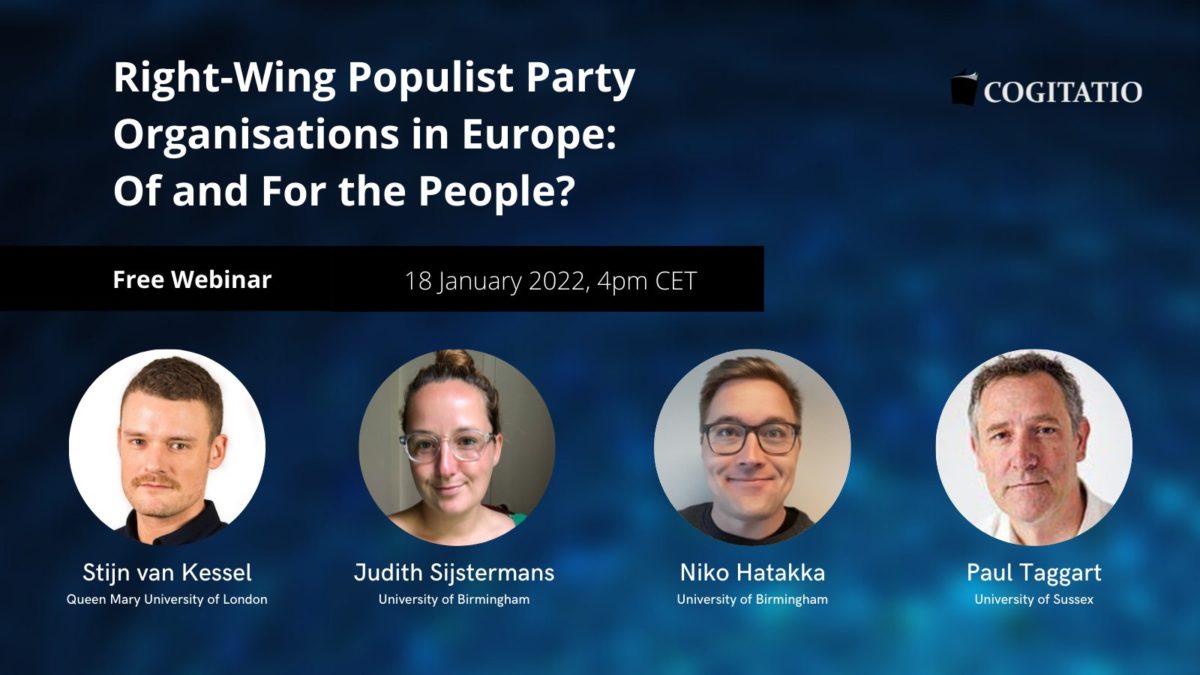by Dr. Bartek Pytlas (LMU Munich)
Poland’s Law and Justice (PiS) party is an excellent case through which to explore the organisational features of a strongly institutionalised, incumbent party which uses populist radical right (PRR) politics. My recent analysis of PiS shows that it is important to contrast what such parties say with what they actually do in terms of organisation. This demonstrates that we must pay increased attention to how parties communicate and ‘perform’ their organisation.
During the 2015 presidential and parliamentary campaigns PiS tried to strategically normalise its image. The mask dropped immediately after the party won the parliamentary election, as it increased its powers at the expense of democratic principles and constitutional norms.
Interestingly, since at least 2015 the PiS has enacted not only programmatic, but also organisational reinvigoration. It has made overtures to some features of the mass party for the purposes of electoral mobilisation and simulated a dispersal of power away from its long-time Chair, Jarosław Kaczyński. In practice, however, little has changed, as PiS has not invested in establishing stronger linkages between party representatives and members, and remains a strongly centralised organisation dominated by its leader.
Mass party? Not quite.
Whilst PiS has enacted linkages that resemble those of the mass party to mobilise sympathisers, it has not developed a mass party organisation in actual practice. During the 2015 campaign, the party stressed that achieving its programmatic goal of “good change” depended upon a united effort by both the party’s “new” caring and efficient leadership, and engaged non‐member sympathisers. Yet, whilst between 2015 and 2019 PiS reported a doubling of its membership, it did not actively engage in expanding its membership base. Most notably, despite PiS’s calling on sympathisers to engage with the party during election campaigns, it did not even put much effort into integrating its actual members into the organisation, or socialising them into the party in a significant and sustained way.
Surveys of activists indicate PiS members had considerable expectations regarding their potential engagement in party activity, but that this was not prioritised by the party itself. One PiS official surveyed admitted that the party had few ideas about how to involve rank‐and‐file members outside periods of electoral campaigning. In these surveys, PiS activists explained the party’s reluctance to admit new members with reference to issues regarding party management, or concerns within regional party branches that an influx of new, highly engaged members could destabilise existing intra‐party power relations and hierarchies.
Organisational reinvigoration – but still a centralised party
Despite the fact that it has performed organisational renewal, PiS remains a strongly centralised party constructed around patronage networks and the power of its long‐time leader: Jarosław Kaczyński. In addition to formal prerogatives, the position of the current party leader is strengthened by his de-facto control over the party’s ongoing operations. Few key decisions can be made without the consent of the PiS Chair who has never hesitated to use the sanctions at his disposal to tame internal dissent.
Despite this situation, the radical public image and absolutist leadership style of Jarosław Kaczyński has clashed with the party’s electoral strategy. During the 2015 parliamentary campaign, the party did not foreground its leader, spotlighting instead new, less well known party leaders as candidates for executive office. In this way the PiS ostensibly appeared to renew its leadership, simulating the dispersal of power away from its long‐time Chair.
Up to 2020, Kaczyński remained a “mere rank‐and‐file” PiS Member of Parliament – at least in formal terms. From this back seat position he nonetheless continued to exert control over the party, as well as its parliamentary and governmental activities – both in person and via central office bodies. By being the party’s “backseat driver” Kaczyński could control the party’s activities without having to respond for the government’s actions. With assistance from PiS loyalists in the media, the party leader could also present himself as the symbolic saviour of Polish politics – even, if required, from the malaise affecting his own party.
Populist Radical Right (PRR) strategies and performative organisational ‘rebranding’
The example of PiS demonstrates how useful it is to compare whatever PRR parties proclaim with what they actually do concerning their organisation. We have also seen how vital it is to observe how parties may adjust the image behind their organisational profile for strategic purposes.
A performative organisational “rebranding” enabled PiS to include selected appeals to the mass party in their campaigning, whilst minimising the organisational costs and perceived risks to internal hierarchies brought about by the mass party organisational model. Blurring its organisational profile also helped PiS to enact an image as a renewed challenger, distinct from the world of “politics as usual”, whilst supporting the party’s vote‐maximising strategy. This suggests parties can use performative organisational rebranding as part of their normalisation strategies – which is especially important to PRR parties.
But whilst parties can strategically try to “have their cake and eat it”, this does not necessarily ameliorate intra-party conflicts, and can potentially (re-)activate them. Personal conflicts within PiS and the governing coalition have re‐emerged since 2020 amidst increasing anti‐government protests, and the COVID‐19 crisis. Simultaneously, the central office has signalled initial moves towards reorganising the party’s regional operations, causing further disquiet within the party. It will be interesting to observe what direction the party will take in the future, not least once its founding leader decides to pass the torch on to a successor.
Dr. Bartek Pytlas is a postdoctoral researcher at the Geschwister Scholl Institute of Political Science, LMU Munich. He is the author of the award‐winning monograph “Radical Right Parties in Central and Eastern Europe: Mainstream Party Competition and Electoral Fortune” (Routledge). His work has been published in journals such as West European Politics and Journal of Common Market Studies. His current project funded by the German Research Foundation focuses on strategic patterns of anti‐establishment politics across Europe. You can follow him on Twitter here.








